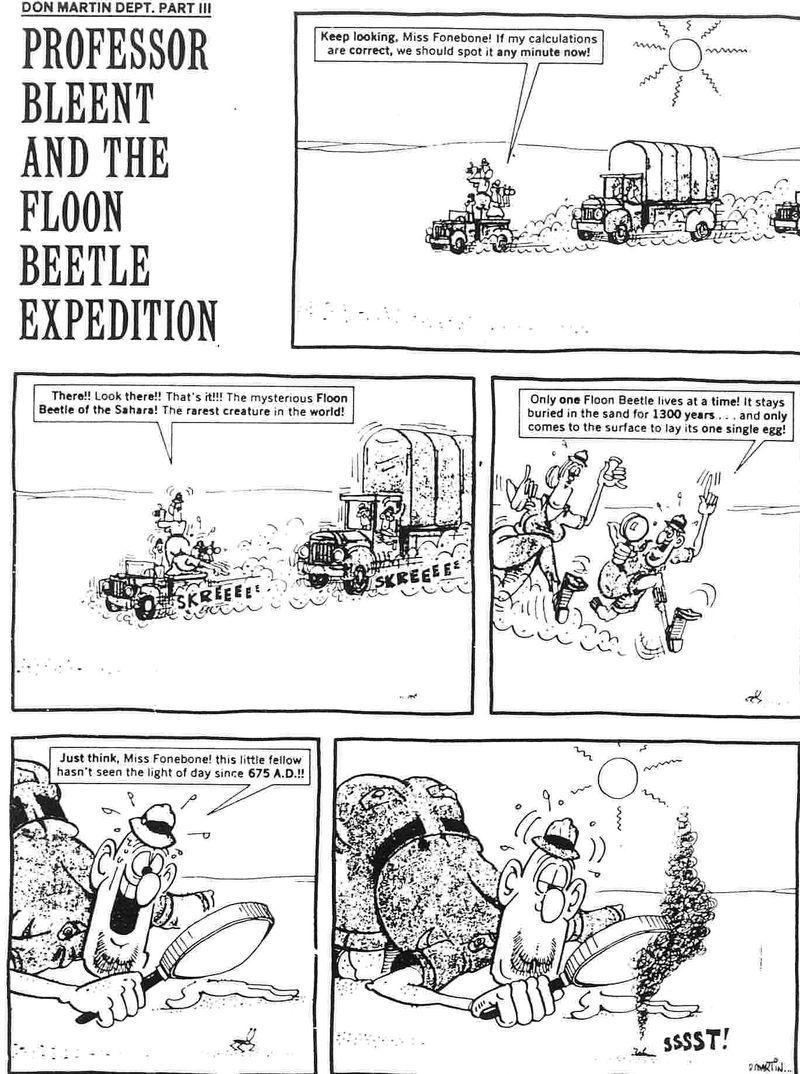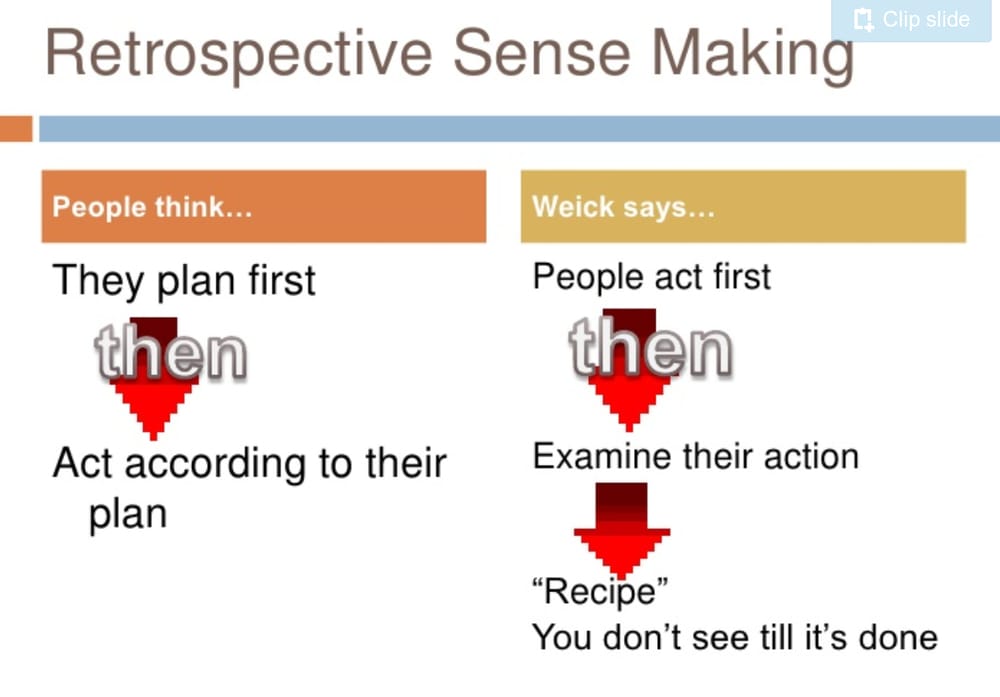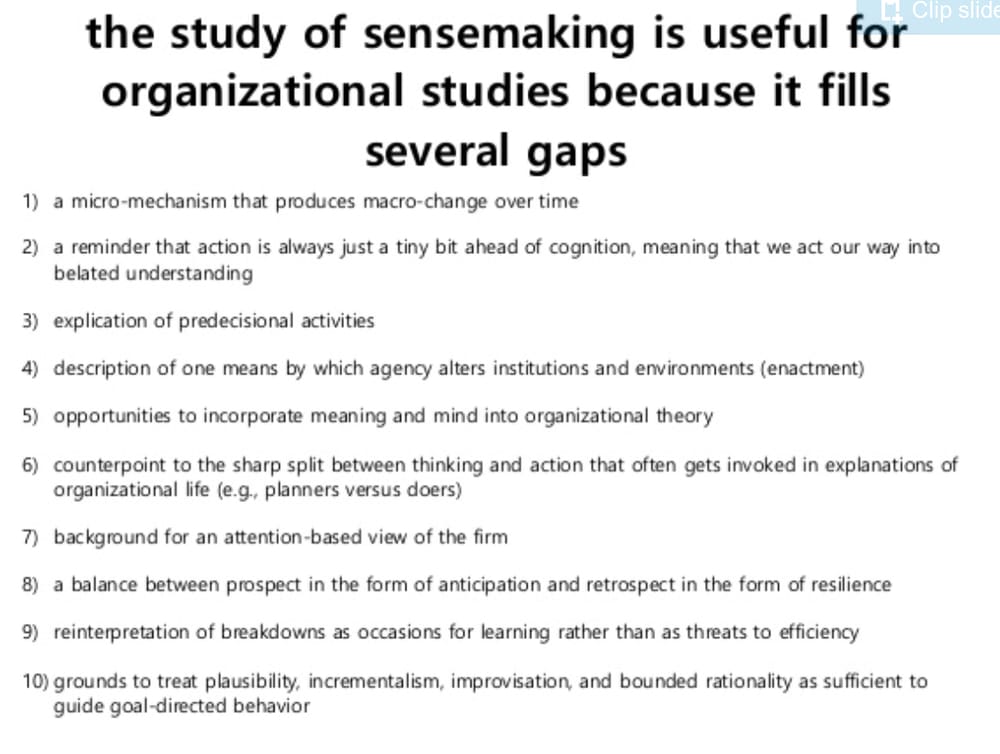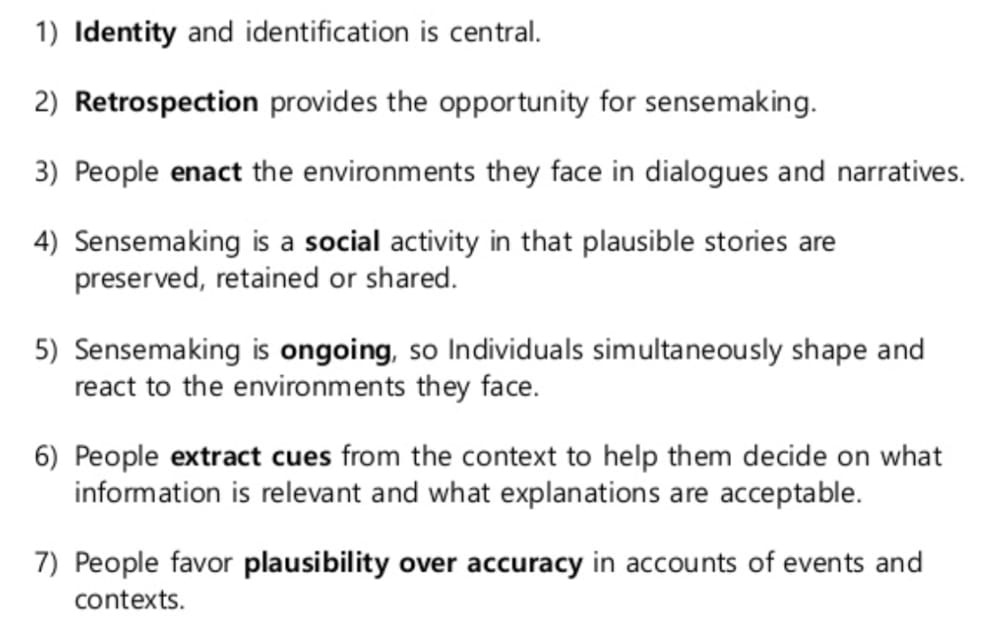Retrospective Rationality

Excerpt from "Karl Weick Keeps You on Your Toes" - by Jordi Comas: "Karl Weick’s work is an influential example of the open systems approach. In grad school, it was a treat to read The Social Psychology of Organizing (still in print since 1967). Not least because he points out that organizations are never stable. They are always organizing. And because he used cartoons! Like this one.
Weick also built his understanding of organizations from the cognitive, the individual, not from the structure down. What I took from our discussion was that there were two ideas Weick covers that we wanted to describe not in conceptual terms, but in empirical terms. These were retrospective rationality and enacting the environment.
Retrospective rationality is the idea that we act in a myriad of ways and then “make sense” of our actions in cognitive and linguistic terms that attempt to make them rational. This is not because humans are dumb or lazy. We act and then think because the unending flow of activity of the world demands it of us. The ways in which we act are also due to a myriad of past reasons and contingencies. In other words, there are always more reasons we have acted or that may explain are actions than we need.
There is equivocality in the world. We don’t always know why things are. Hence retrospective rationality is about reducing equivocality; reducing the welter of contradicting reasons why we may have acted or that may explain why the world of human affairs is as it is. To be adaptive to this environment, to be open, requires tolerating some messiness, some disorder. For example, in SPofO, he writes:
…the inability of organizations to tolerate equivocal processing may well be the the most important reason they have trouble. It is the unwillingness to meet equivocality in an equivocal manner that produces failure, nonadaptation, autism, isolation form reality, psychological cost, etc. It is the unwillingness to disrupt order, ironically, that makes it impossible for the organization to create order (41).
But what about examples? In his 1995 book, Sensemaking in Organizations, Weick offers tow research-based examples (29-30). One involves asking film executives about the future of the film industry after they look at financial reports for the preceding three years. Logical approach, right? As it was reported, the exercise reflected how much variation in understanding there was about what had happened in the past. Hence, any attempt to understand the present and future was beset by equivocality. Something explained past performance? But what? Consumer tastes? Directors’ abilities? Cultural zeitgeist? A second example was a control group psychology experiment (very classic in style) where people were randomly assigned to groups that would be arbitrarily assigned low or high performance status (irrespective of actual results). Those in high performance groups reported that in most areas of group function, guess what, they scored higher than low performing groups."
"Retrospective Rationality" plays an important role in "sense-making":



